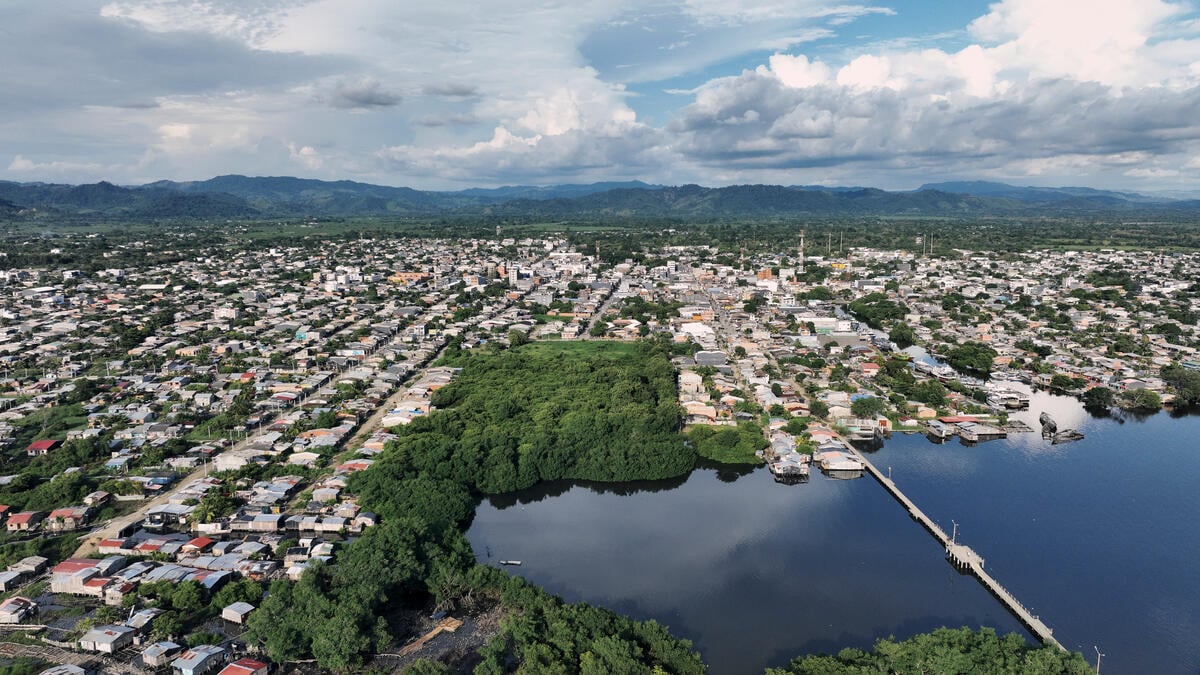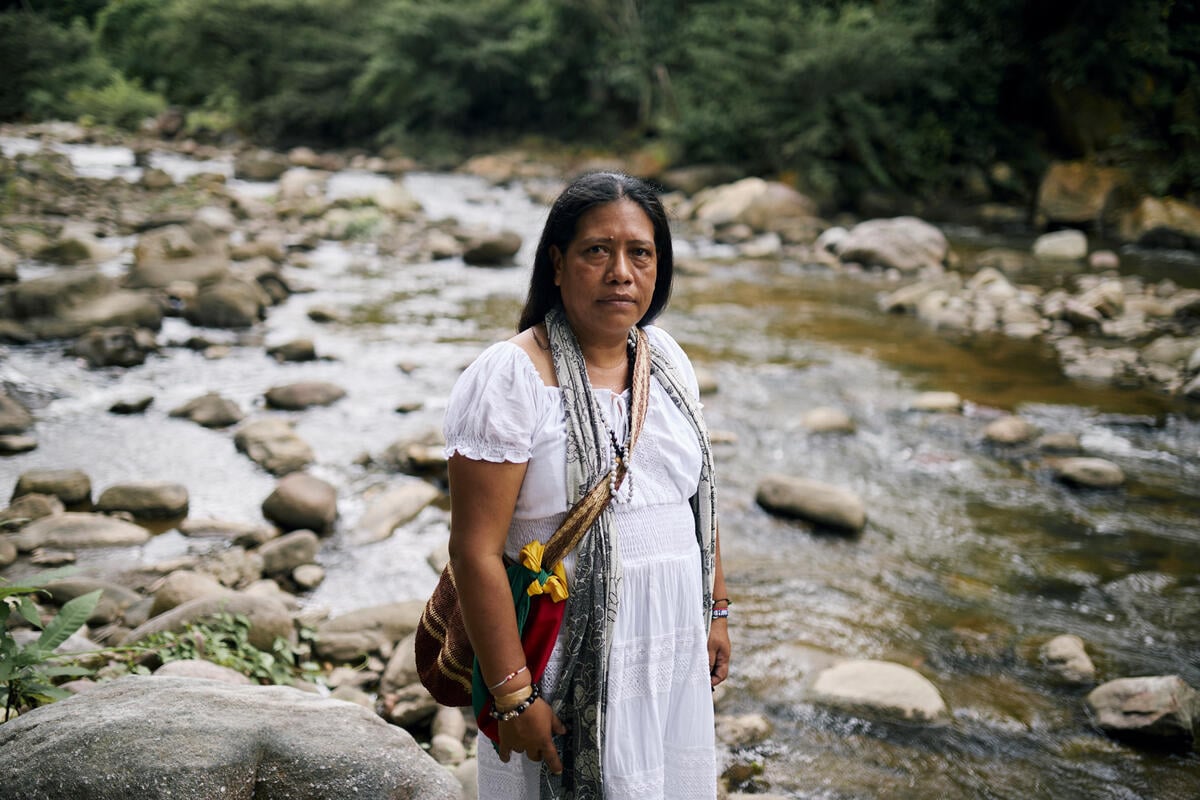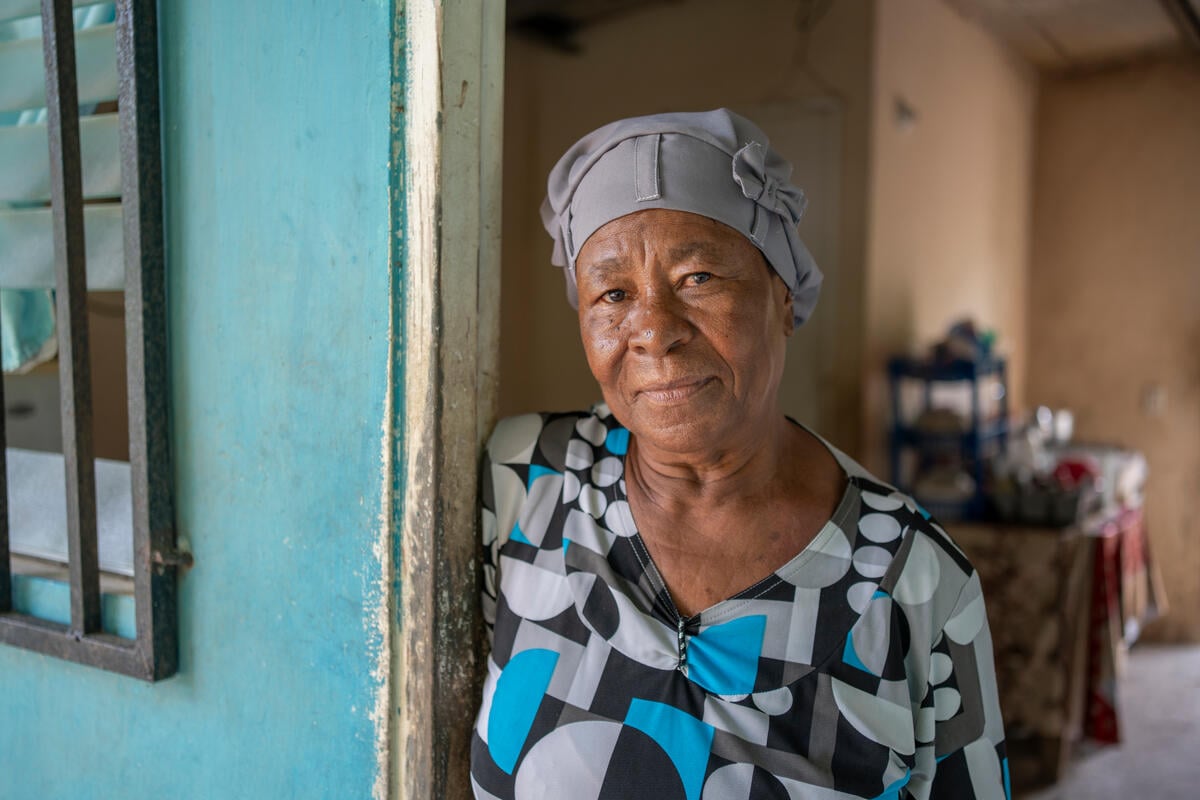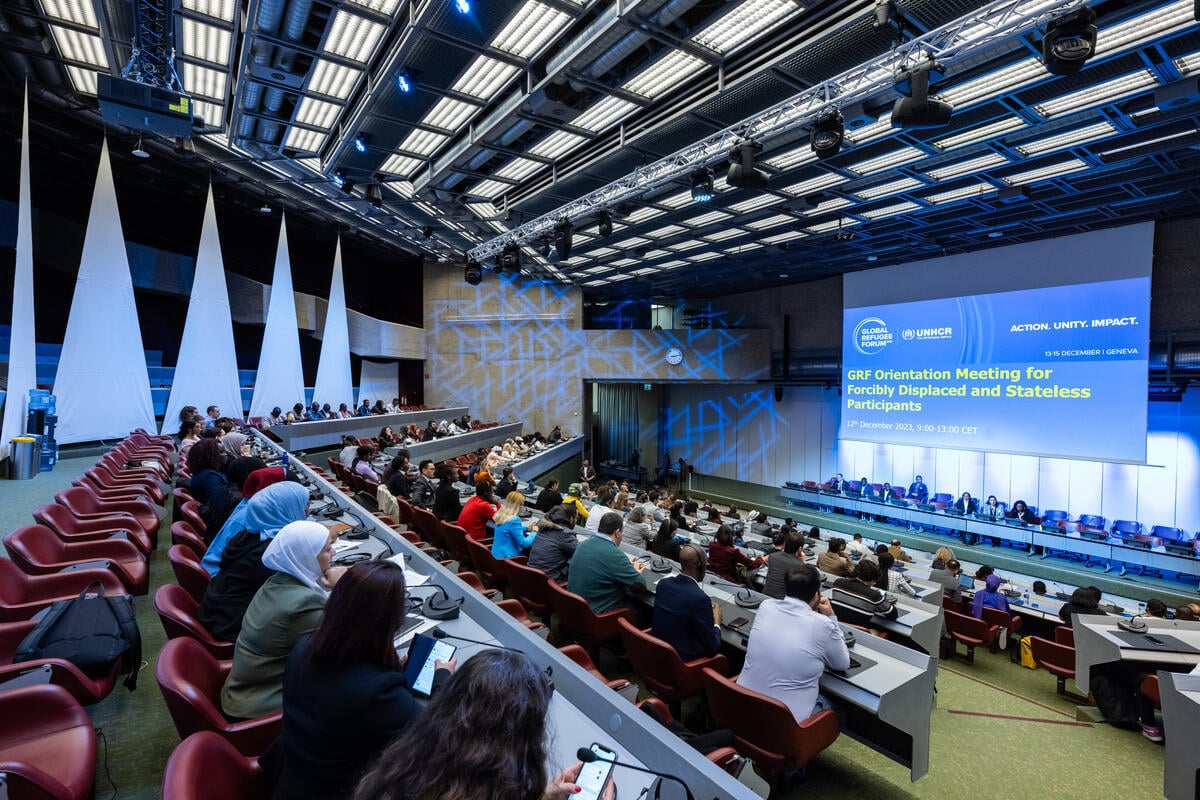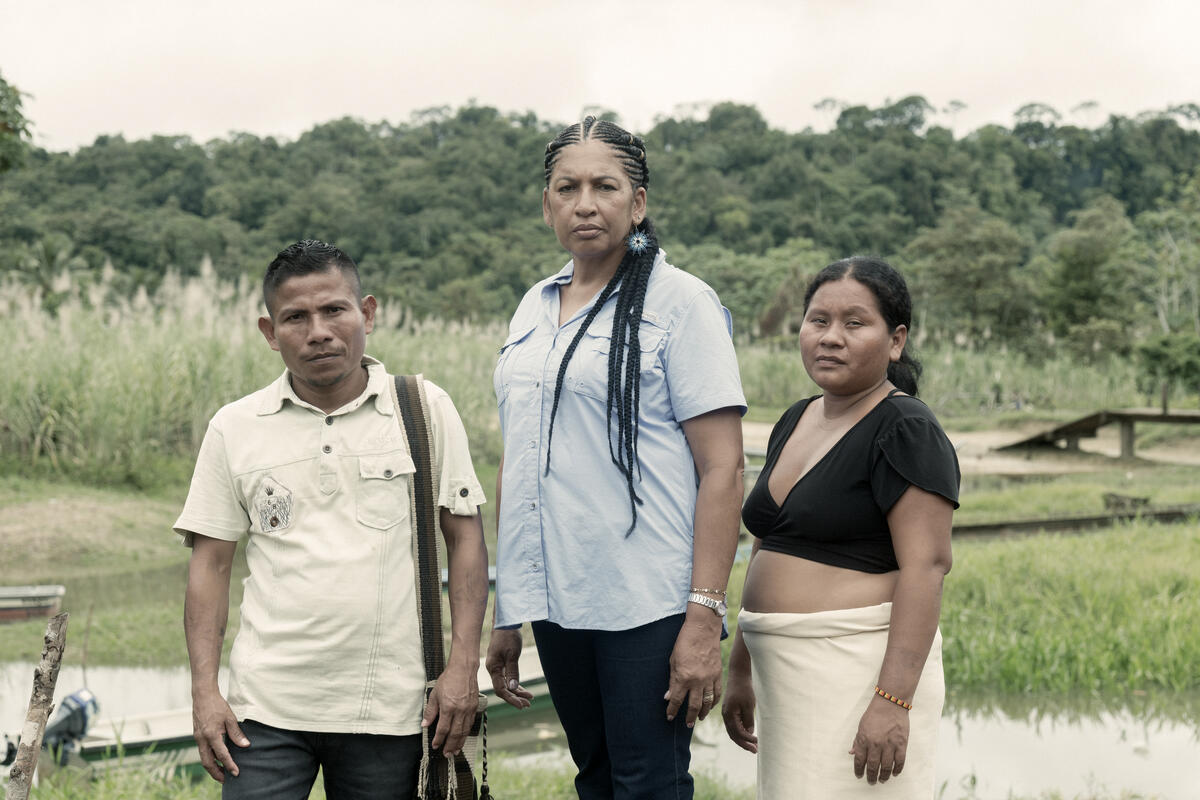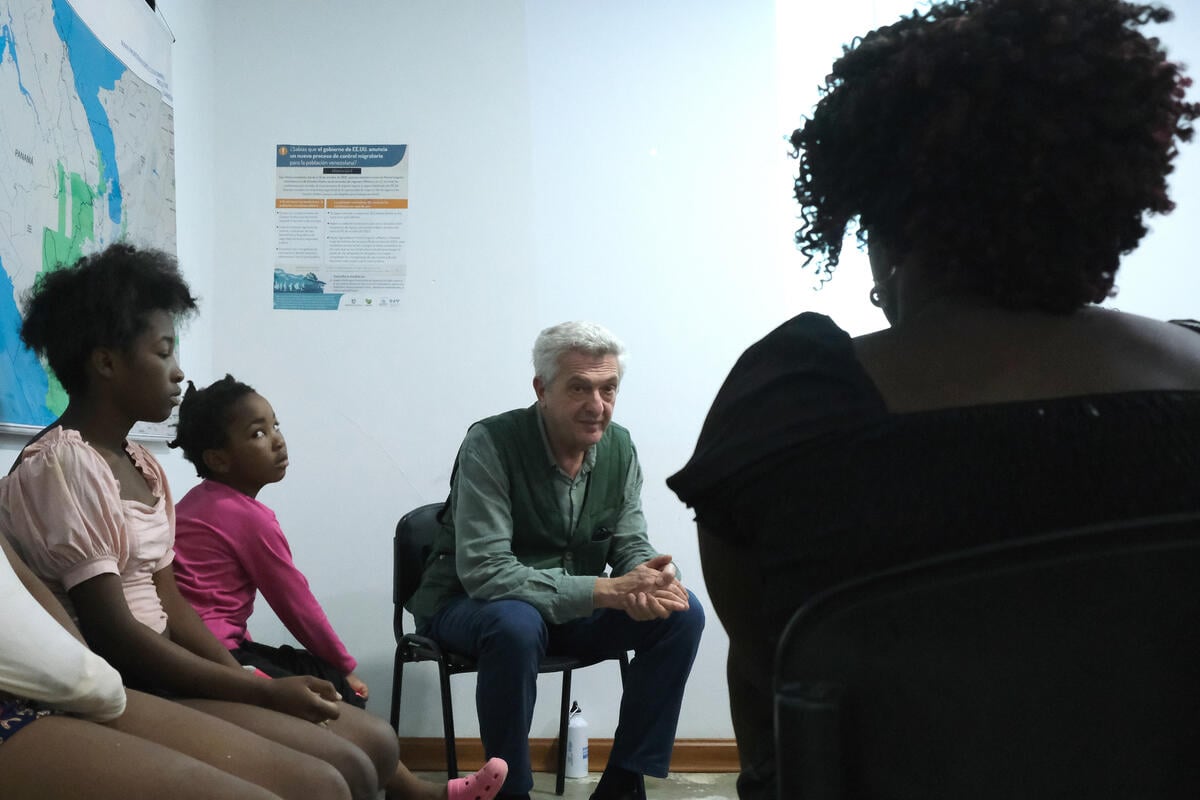Colombia: UNHCR strongly condemns last week's brutal murders in north-west
Colombia: UNHCR strongly condemns last week's brutal murders in north-west
UNHCR strongly condemns the brutal murders last week of eight people, including three children, from the peace community of San José de Apartadó in north-western Colombia.
According to local witnesses, on 21 February, unidentified armed men in military fatigues abducted Luis Eduardo Guerra, founder and historical leader of the San José de Apartadó peace community, his wife, and Guerra's 11-year-old son. They were taken to the property of another member of the peace community, who was also held along with his wife and their two children aged 6 and 2. The two families, together with another man, were then brutally murdered and their bodies left in a shallow mass grave.
Two UNHCR officials, including our representative in Colombia, are scheduled to travel tomorrow (Wednesday) to San José de Apartadó to meet with community members and military authorities in the area. Staff from the UNHCR office in Apartadó visited the community last Friday, soon after news of the massacre broke.
These murders are the latest in a string of attacks that, according to the San José de Apartadó community, have left 154 of their members dead since 1997. Peace communities were established in the late 1990s in the Urabá region of north-western Colombia by people displaced by the conflict who gradually began to return to their communities. Peace communities are committed to peaceful civil resistance and neutrality. They reject the presence in their territory of irregular armed groups and the regular army. Mr. Guerra was a founder of the San José de Apartadó peace community and had represented it in negotiations with the government. Since its foundation in 1997, UNHCR has supported San José de Apartadó through various projects. In 1997, the Inter-American Commission for Human Rights requested special protection measures on behalf of the San José de Apartadó peace community.
These murders clearly show the difficult situation facing the peace communities and the risks confronting their leaders. In the last eight years, the Colombian State has not been able to undertake sufficient measures to protect and solve the problems faced by these communities.
UNHCR offers its condolences to the San José de Apartadó community, and we call on Colombian authorities to thoroughly investigate these deplorable crimes and to prosecute those responsible. We also urge authorities to ensure the protection of community leaders and members of internally displaced persons' associations throughout Colombia who are at risk of violence, threats and intimidation. UNHCR will continue working with the San José de Apartadó community and other communities at risk, strengthening them and supporting them in the defence of their rights.
UNHCR's work in Colombia is aimed at protecting and promoting the rights of internally displaced people and strengthening the response of the government and civil society to forced displacement. It works in coordination with Colombian authorities, church groups, NGOs, IDP associations and other UN agencies.
More than 1.5 million internally displaced people are registered with the Colombian government, but NGOs estimate there could actually be over 3 million IDPs in the country. According to official sources, 74 percent of the displaced are women and children.
Elsewhere, there are now close to 1500 Afro Colombian men, women and children displaced in the town of Bellavista, municipality of Bojayá, in Colombia's north-western Chocó province. The IDPs left their small villages due to fear of impending clashes between armed groups in the area. People from small communities in the area continue to arrive in Bellavista in search of protection. After an agreement was reached between the communities and local authorities, UNHCR will contribute to the building of four temporary shelters for IDPs in Bellavista. UNHCR has also participated in the drafting of a contingency plan for assistance to people displaced in Bellavista. A UNHCR team will go to Bellavista at the end of this week to meet with the leaders of nearby indigenous communities which are also at risk of displacement.
In the region of Condoto (southern Chocó), discussions continue between the authorities and community leaders in order to find appropriate shelter for 98 displaced families that arrived in the community in December 2004 and January 2005, escaping from an economic blockade in the surrounding area. UNHCR has already begun a year-long process for strengthening community organisations in the area, training them in human rights and organisational processes, in order to ensure they will be better prepared for future challenges.



